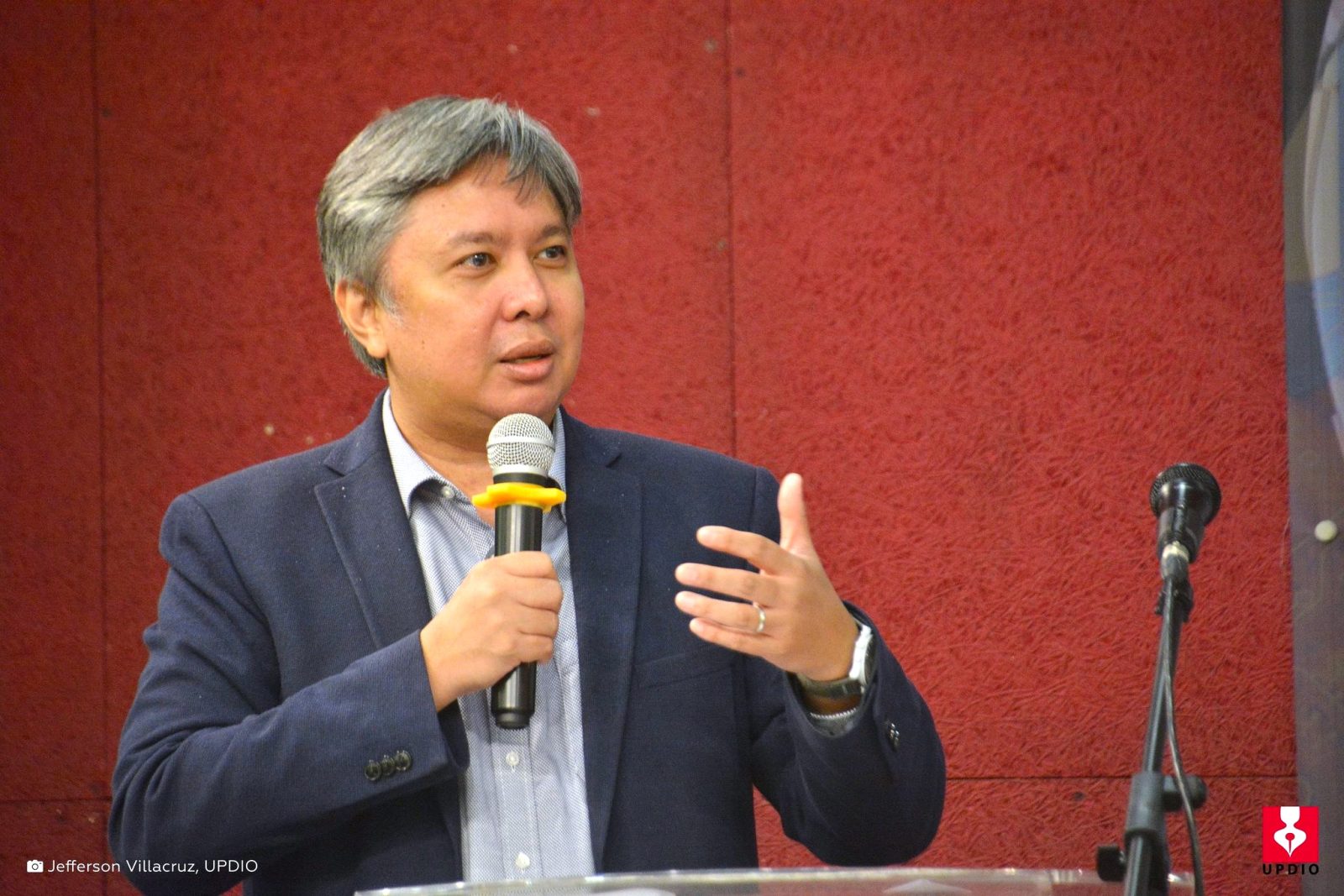“If technology is a very potent force in our world, then it makes sense to harness technology itself to solve the problems that it creates.”
UP Diliman (UPD) Chancellor Edgardo Carlo L. Vistan II emphasized this point in his keynote address at the forum Securing the Future: Forum on Cybersecurity and Artificial Intelligence (AI).

The forum was organized by the Center for Policy and Executive Development (CPED) of the UPD National College of Public Administration and Governance (NCPAG), in partnership with the Congressional Planning, Research, and Budget Department, the UPD College of Engineering Computer Vision and Machine Intelligence Group, and the Global Forum on Cyber Expertise. According to a CPED post on its Facebook page, “the forum aims to foster strategic partnerships in advancing cybersecurity and AI policies bringing together experts from national and international institutions.”
Vistan opened his keynote with an overview of his experiences in conducting research in law and technology, particularly cybersecurity and international law.
Vistan shared that as a faculty member of the UP College of Law, a large part of his research focuses on “cybersecurity and ‘cyber’ in general and their intersections with policy and other interventions.”
He said, “The attempt to control or regulate the profound and wide-reaching technological changes such as the ‘cyber,’ biotechnology, and artificial intelligence (AI) by social institutions, political institutions, governments, and the law, will not always work.”
Vistan explained about cultural lag and mentioned William F. Ogburn, the 20th century sociology professor who coined the term.
“What that [cultural lag] means is that many of the changes in a culture in our society, he [Ogburn] believes, are initiated by technological changes,” he said.
Vistan pointed out that milestones in technological changes or advancements, such as the creation of the steam engine, creation of the first computer, the internet, and now the AI, trigger responses from other sectors of society. People in authority always think of ways to address the anticipated problems that these new technologies bring.
“Those milestones in technological change or advancement, they trigger responses from other aspects of society, and one major response is through law, through policy,” Vistan said.
According to Vistan, most of the responses always lag behind. He, however, pointed out that late responses are natural.

“That is always the case historically. We don’t have to be worried about that. The key here is to respond in the right way, it should be the correct response,” Vistan added.
Vistan also touched on the natural social-legal response to cybercrimes, which is to criminalize or penalize the perpetrators.
He cited numerous international conventions defining cybercrimes that led to institutional and legal adjustments adapted by many countries, the Philippines included.
Vistan reminded everyone to temper expectations on legal interventions. He added that there is still a need to study how many have been prosecuted under these offenses.
“Technological changes move fast, are highly adaptable and fueled by brilliant, creative minds, and well-funded entities that outnumber and outmatch even the most brilliant and well-resourced governments. Technology is always looking for the next innovation and will wait for no one because invention and innovation thrive in a non-regulated and open environment. And because of its accessibility, people must realize and accept that technology is a social or cultural factor,” he said.
In closing, Vistan suggested the creation of a legal framework that incentivizes and acknowledges the role of the innovators to police themselves. He also recommended creating solutions based on the very same technology to address the problems it has created.
“If one system goes down because of a cyberattack, you can place online a similar system and pick up where you left off,” Vistan said. “And if we see technology as a problem, I think technology is also the solution, and we should create the environment to promote that,” he added.
The forum was held on April 17 at the NCPAG International Center for Public Administration.
